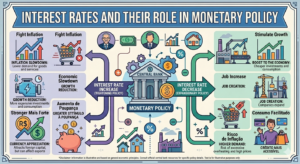The last decade has seen an unprecedented technological revolution, and its impact on Small Businesses (SMBs) has been nothing short of transformative. No longer is cutting-edge technology reserved for large enterprises with massive IT budgets. Today, affordable, accessible, and scalable digital tools are leveling the playing field, empowering SMBs to compete globally, enhance operational efficiency, and build deeper customer relationships. From cloud computing and Artificial Intelligence (AI) to mobile connectivity and e-commerce platforms, technology is reshaping every facet of the small business model, making agility and digital fluency essential for survival and growth.
The Operational Revolution: Efficiency and Scalability
One of the most immediate and profound effects of technology is the radical improvement in how SMBs manage their day-to-day operations. Previously time-consuming and manual tasks are now automated, freeing up valuable time and resources for core business activities.
1. Cloud Computing and SaaS (Software as a Service)
The single most critical enabler for modern SMBs is the cloud. Cloud computing, delivered through SaaS models, allows small companies to access sophisticated software and infrastructure without the need for on-site servers or dedicated IT staff.
- Financial Management: Cloud-based accounting software (e.g., QuickBooks, Xero) automates invoicing, payroll, expense tracking, and financial reporting. This dramatically reduces bookkeeping costs and provides real-time financial insights.
- Customer Relationship Management (CRM): Affordable cloud CRM systems (e.g., HubSpot, Salesforce Essentials) allow SMBs to track leads, manage customer interactions, and analyze sales performance in a centralized database, a capability once exclusive to large corporations.
- Collaboration: Tools like Google Workspace or Microsoft 365 provide integrated platforms for communication, document sharing, and project management, enabling seamless collaboration even with remote or distributed teams.
2. Automation and AI Tools
Artificial Intelligence and automation are no longer futuristic concepts; they are practical tools being deployed by small businesses today.
- Marketing Automation: Tools automate repetitive tasks like sending welcome emails, segmenting customer lists, and scheduling social media posts, ensuring consistent communication with minimal effort.
- Customer Service: Chatbots and AI-powered virtual assistants handle simple, repetitive customer queries 24/7, reducing the burden on human staff and improving response times.
- Inventory and Supply Chain: AI algorithms can predict demand fluctuations more accurately, helping small retailers and manufacturers optimize inventory levels, reduce waste, and manage their supply chains more efficiently.
The Digital Marketplace: Global Reach and E-Commerce
Technology has shattered geographical barriers, allowing a micro-business in a small town to sell products and services to customers anywhere in the world.
1. E-commerce Platforms and Marketplaces
Platforms like Shopify, Etsy, and WooCommerce have democratized retail. An entrepreneur can set up a professional, functional online store in a matter of hours without any coding knowledge.
- Direct-to-Consumer (D2C): These platforms enable SMBs to bypass traditional retail middlemen and establish direct relationships with their customers, leading to higher profit margins and better brand control.
- Marketplace Leverage: Selling through established marketplaces (Amazon, eBay) gives instant access to millions of potential customers and provides a trusted platform for secure transactions and logistics.
2. Digital Marketing and Hyper-Targeting
Digital advertising tools available on social media (Facebook, Instagram, LinkedIn) and search engines (Google Ads) provide powerful, cost-effective alternatives to expensive traditional media.
- Precision Targeting: SMBs can use demographic, interest, and behavioral data to target their ideal customers with extreme precision, maximizing the return on investment (ROI) for every marketing dollar spent.
- Affordable Analytics: Tools like Google Analytics offer deep, real-time insights into customer behavior, website performance, and marketing campaign effectiveness, allowing SMBs to iterate quickly and make data-driven decisions.
Enhancing the Customer Experience (CX)
In the digital age, customers expect personalized experiences, instant communication, and seamless service. Technology is the key to meeting these heightened expectations.
1. Personalization and Data
By collecting and analyzing customer data via their websites, social media, and CRM systems, small businesses can offer tailored experiences.
- Customized Offers: Sending personalized email campaigns or presenting product recommendations based on a customer’s past purchases or browsing history significantly increases the likelihood of conversion and repeat business.
- Feedback Loops: Digital survey tools and social listening platforms allow SMBs to gather instant, actionable feedback, enabling them to quickly resolve issues and adapt their offerings.
2. Mobile Connectivity and Payments
Mobile technology has streamlined in-person transactions and interactions.
- Point-of-Sale (POS) Systems: Mobile POS solutions (e.g., Square, Clover) transform a smartphone or tablet into a complete cash register, making it easy for small shops, food trucks, or pop-up vendors to accept credit cards securely and manage sales records.
- Mobile Apps: Even small service providers are using dedicated apps or third-party booking platforms for scheduling appointments, sending reminders, and offering loyalty programs, creating a smoother customer journey.
The Challenges and the Future
While technology offers immense advantages, its adoption presents specific challenges for SMBs:
- Cybersecurity Risk: As businesses digitize, they become targets for cyberattacks. Protecting customer data and systems requires ongoing education and investment in secure practices.
- Skill Gaps: Owners and employees must continually learn new software and digital strategies. The need for digital literacy across all staff is paramount.
- Integration Complexity: Managing multiple SaaS platforms requires careful integration to ensure data flows smoothly and avoids siloing information.
The future of small business is inextricably linked to technological advancement. Emerging technologies like 5G connectivity, which promises faster data transmission and better remote management, and further advancements in generative AI will continue to introduce new efficiencies. Small businesses that embrace a culture of continuous digital learning, prioritize cybersecurity, and leverage the power of cloud and AI to enhance both operations and customer experience are not just surviving; they are poised to lead the next wave of economic growth. In this digital era, technology isn’t just a tool—it’s the fundamental engine of the modern small business.







